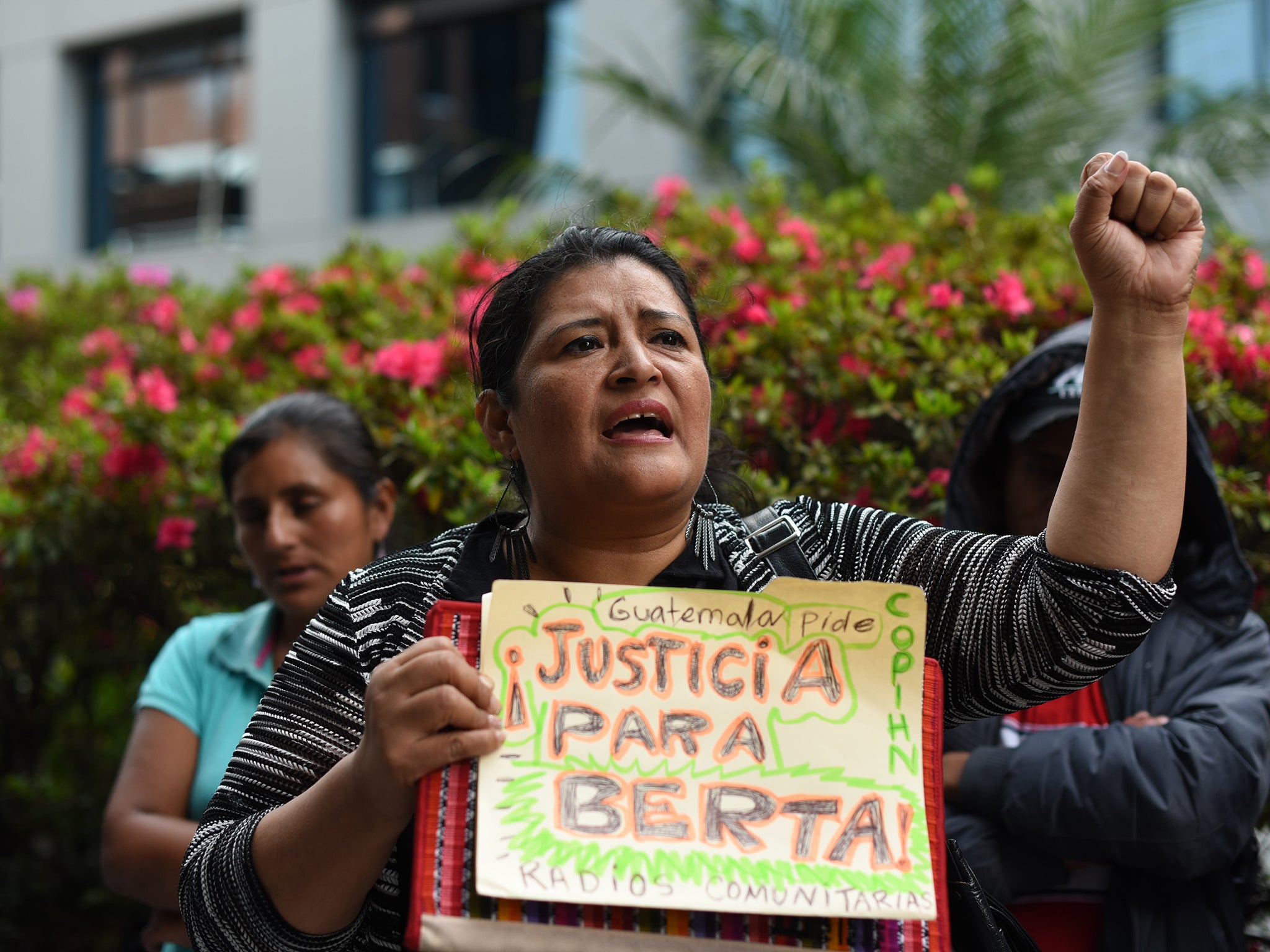Record 200 activists murdered globally for defending the environment as numbers grow year-on-year
Nearly four people were killed every week across 24 countries in 2016

It has never been deadlier to stand up against corporations that destroy the environment.
A record number of 200 environmental activists were killed in 2016 while protesting against companies' mining, logging and agribusiness activities, a report by Global Witness has found.
The NGO which exposes corruption and environmental abuse has been tracking the number of people killed defending their land from destructive activities and in the last few years has consecutively reported a record number of deaths.
Global Witness previously named 2015 as the "deadliest year on record" for the killing of activists with 185 deaths across 16 countries reported - a 59 per cent increase compared to 2014 and the highest figure since the group began collating data in 2002.
Its latest report, Defenders of the Earth, found that nearly four people were killed every week across 24 countries last year while campaigning to protect the environment.
Brazil was by far the most dangerous place for activists, with 49 reported killings, followed by Colombia where the toll more than doubled compared to last year, reaching 37 killings, and the Philippines with 28 opposing mining industry activities murdered.
According to the report, in India there were 16 killings, a three-fold increase, Honduras had 14, while Nicaragua had 11, mostly indiginous people killed in conflicts with settler communities over land. Global Witness also calls attention to concerns activists have about an inter-oceanic canal, which they say is threatening mass displacement and social unrest.
In the Democratic Republic of the Congo, 10 were killed as large numbers of rangers defending national parks were targeted.
Almost 40 per cent of those who were killed were indigenous people and 60 per cent of those murdered were from Latin America, the report found.
In Colombia, for example, extractive industries are backed by the government and funded by international development banks but face strong opposition from indigenous communities.
In the report, the NGO warned governments and businesses around the world are "failing in their duty to protect activists at risk".
"They are permitting a level of impunity that allows the vast majority of perpetrators to walk free, emboldening would-be assassins. Investors, including development banks, are fuelling the violence by backing projects that harm the environment and trample human rights," it stated.
Global Witness also suggests police, military and security guards were also involved in the killings.
It said: "A lack of prosecutions also makes it harder to identify those responsible, but we found strong evidence that the police and military were behind at least 43 killings, with private actors such as security guards and hitmen linked to 52 deaths."
The report found that struggles between governments, companies and local communities over the use of land and natural resources underpinned most of the killings. In some instances, the NGO was able to identify the specific sectors activists had opposed.
Overall, activists were opposing the mining and oil industry on 33 occasions, logging and agribusiness each on 23 instances. Poaching was identified in 18 of the killings.
The report states that besides killings, environmental activists face other threats aiming at silencing them, including death threats, arrests, sexual assault, illegal surveillance and aggressive legal attacks, but receive little or no protection from authorities.
The 50-page report includes testimonies from activists who were confronted with intimidation and violence for protesting at what the NGO describes as environmental pillaging of their homeland.
Jakeline Romero from Colombia has faced years of threats and intimidation for speaking out against the impact of El Cerrejon, Latin America's largest open-pit mine, which has been blamed for contaminated water and mass displacement.
In India, Rinchin has been supporting local communities including the Adivasi tribespeople in Chhattisgarh, a heavily forested state in central India, who are protesting against coal companies grabbing land and causing pollution, the report states.
"There is a complete breakdown of the law. Large numbers of the Adivasi population are illegally losing their land to corporations through land grabs," she said.
"None of the demands have been met by the government or the company."
Last year, indigenous and environmental rights campaigner Berta Caceres was murdered in her own home in Honduras over her opposition to a hydroelectric dam project.
Honduran activist Ana Miriam Romero also told Global Witness she almost lost her baby when the police beat her up while she was pregnant as she protested against the activities of a hydro company on her community's land.
"We must keep up the fight. We must not lose our spirit, our children's future depends on it," she said.
In 2015, Global Witness named Honduras as the most dangerous place of earth for environmental activists.
The report concludes that the right to a healthy environment and the right to participate in public life and protest are internationally recognised human rights, meaning governments have to protect them under the UN Declaration of Human Rights Defenders.
In the report, the NGO urges governments to make 2017 "a watershed year" and give guarantees to communities over their ability to make free and informed choices about how their land and resources are used.
Join our commenting forum
Join thought-provoking conversations, follow other Independent readers and see their replies
Comments
Bookmark popover
Removed from bookmarks